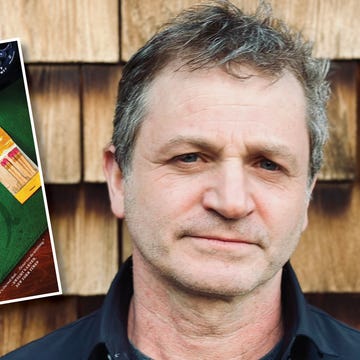Like, for sure, we all know the classic Valley girl verbal vibe or the slang of SoCal surfers catching gnarly waves. But the Golden State accent goes far beyond those California clichés—and comes with a rich and fascinating history. Linguist Penelope Eckert, who is featured in Adam Rogers’s latest for Alta Journal, “Californian Spoken Here,” sits down with Alta Live to explain how the state’s Spanish and English settlers set the tone for the way we speak today. She’ll also detail some of the myriad California dialects, from the Midwesterners who headed to the Southern part of the state and the East Coast folks who settled in San Francisco to the diverse collection of immigrants who added their own culture of communication to the region. Join us for this fun talk—on the ways in which we talk.
About the guest:
Penelope Eckert is the Albert Ray Lang Professor Emerita of Linguistics at Stanford University. She specializes in variationist sociolinguistics and is the author of several scholarly works on language and gender.
Here are some notable quotes from today’s event:
- On types of linguists: “A sociolinguist is a kind of linguist. A linguist is somebody who studies language and the structure and change of language. My specialty is language change. And so I started out my career studying the development of Latin into the various Romance languages—I worked on a dying dialect of Latin. And then I shifted my interest to what’s happening to English in the U.S., because language change is a social phenomenon, and as language changes, these little, tiny changes take on social meaning, and we sort of express ourselves using these sort of phonetic changes.”
- On regional dialects: “The difference is how long people have been speaking English. On the East Coast, they’ve been speaking English for centuries. And when you use language, you change it—speaking language brings about change. Over centuries in the East, you’ve developed very clear dialects from North to South, Boston versus New York and so on. Some of it has to do with settlement patterns, but basically, it’s a matter of time. So California, I mean, how long have people been speaking English in California? Not long at all. And in fact, this thing we’re calling the California dialect really only developed during the 20th century.”
- On language changes: “Linguists, in general, are interested in how language changes—because language changes. Just think, in the matter of just a little over a thousand years, Latin turned into all of the Romance dialects. French, Spanish, Romanian, Portuguese, and so on. That’s a lot of change. And we’ve discovered that we can actually see these changes in progress when we look at social differences among speakers living right now.”
Check out these links to some of the topics brought up this week.
- Read “Californian Spoken Here,” by Adam Rogers.
- Check out the Voices of California project, where Eckert and others from the Stanford Linguistics Department document and examine California English.
- Look into more of Eckert’s work.
- Learn more about the California shift.•











